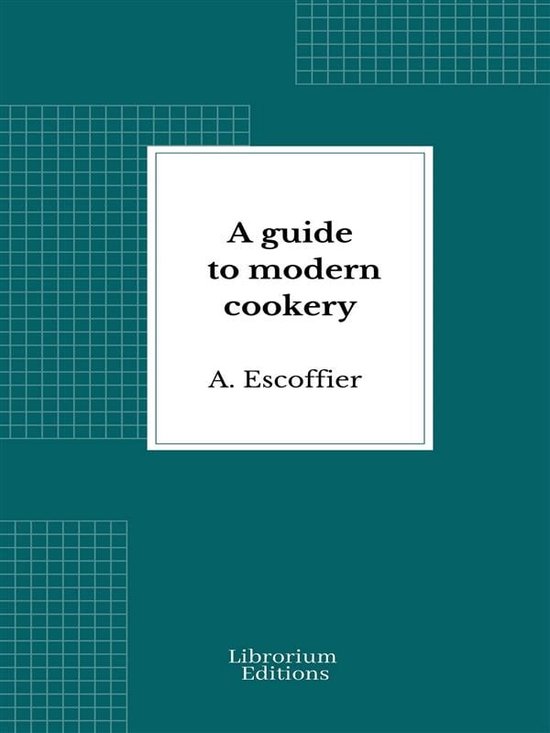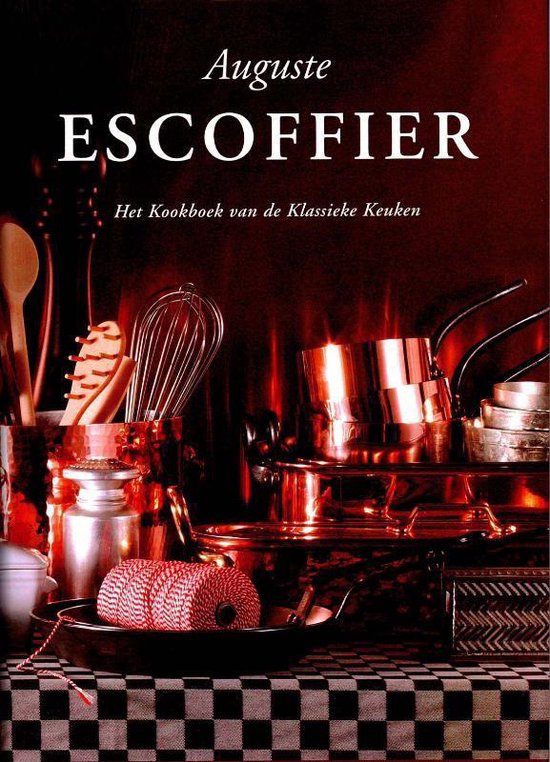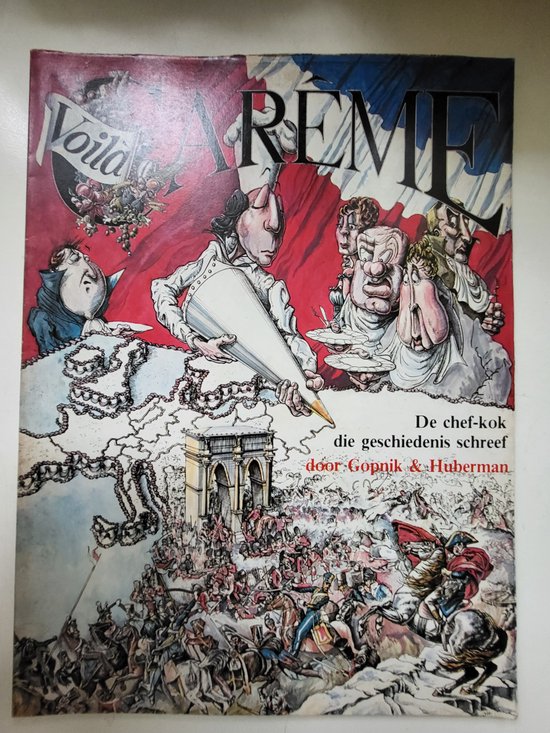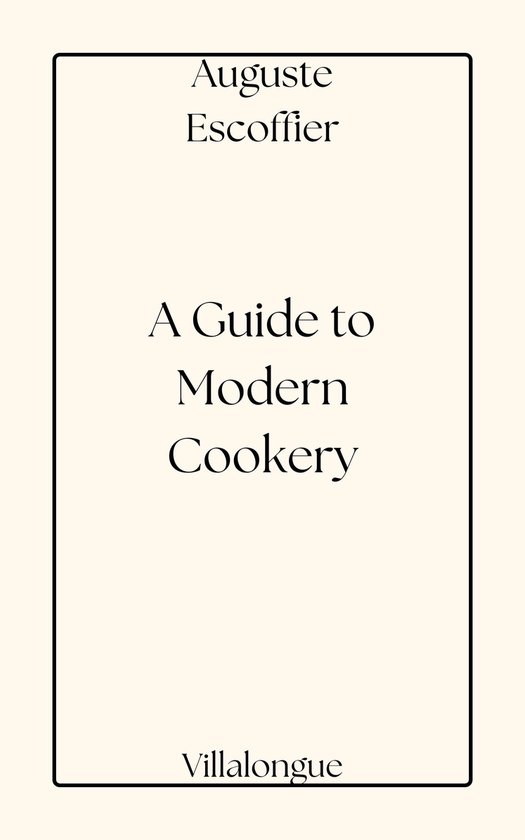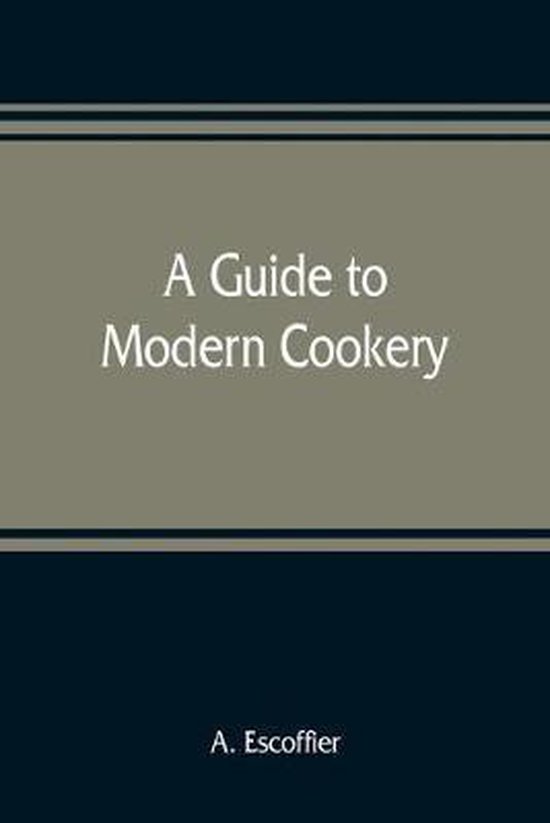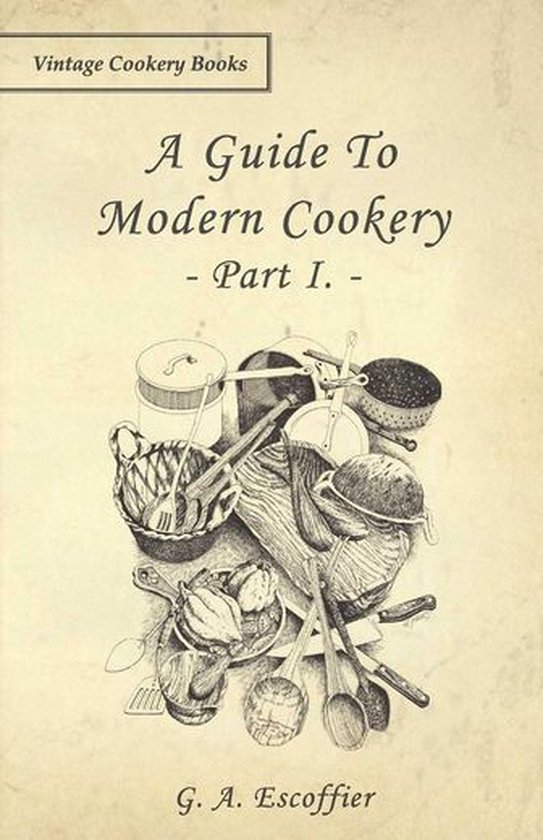
A Guide to Modern Cookery - Part I
PREFACE If the art of Cookery in all its branches were not undergoing a process of evolution, and if its canons could be once and for ever fixed, as are those of certain scientific operations and mathematical procedures,inasmuch as there already exist several excellent culinary text-books in the English language. But everything is so unstable in these times of progress at any cost, and social customs and methods of life alter so rapidly, that a few years now suffice to change completely the face of usages which at their inception bade fair to outlive the age so enthusiastically were they welcomed by the public. In regard to the traditions of the festal board, it is but twenty years since the ancestral Engish customs began to make way before the newer methods, and we must look to the great impetus given to travelling, in order to account for the gradual but unquestionable revolution. In the wake of the demand came the supply. Palatial hotels were built, sumptuous restaurants were opened, both of which offered their customers luxuries undreamt of theretofore in such establishments. Modern society contracted the habit of partaking of light suppers in these placcs, after the theatres of the Metropolis had closed and the well-to-do began to flock to them on Sundays, in order to give their servants the required weekly rest. And, since restaurants allow of observing and of being observed, since they are eminently adapted to the exhibiting of magnificent dresses, it was not long before they entered iuto the life of Fortunes favourites. But these new-fangled habits had to be met by novel methods of Cookery - better adapted to the particular environment in which they were to be practised. The admirable productions popularised by the old Masters of the Culinary Art of the preceding century did not become the light and more frivolous atmosphere of restaurants were, in fact, ill-suited to the brisk waiters, and their customers who only had eyes for one another. The pompous splendour of those bygone dinners, served in the majestic dining-halls of manors and palaces, by liveried footmen, was part and parcel of the etiquette of Courts and lordly mansions. It is eminently suited to State dinners, which are in sooth veritable ceremonies, possessing their ritual, traditions, and - one might even say -their high priests but it is a mere hindrance to the modern, rapid service. The complicated and sometimes heavy menus would be un-welcome to the hypercritical appetites so common nowadays hence the need of a radical change not only in the culinary preparations themselves, but in the arrangements of the menus, and the service. Circumstances ordained that I should be one of the movers in this revolution, and that I should manage the kitchens of two establishments which have done most to bring it about. I therefore venture to suppose that a book containing a record of all the changes which have come into being in kitchen work - changes whereof I am in a great part authpr - may have some chance of a good reception at the hands of the public, i.e. at the hands of those very members of it who have profited by the changes I refer to. For it was only with the view of meeting the many and persistent demands for such a record that the present volume was written...
| Auteur | | G. A. Escoffier |
| Taal | | Engels |
| Type | | E-book |
| Categorie | | Kookboeken |
